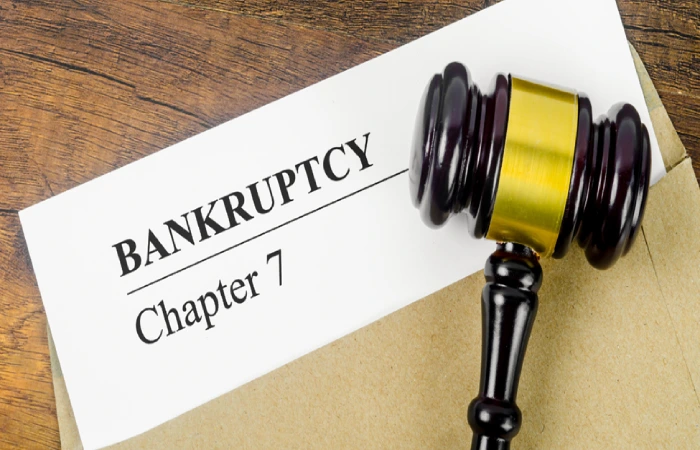Table of Contents
Introduction
Filing for Chapter 7 bankruptcy in Oklahoma can be a daunting process, especially when it comes to concerns about losing one’s home or automobile. In this comprehensive guide, we will delve into the intricacies of Chapter 7 bankruptcy, shedding light on how it affects your home and auto assets. Understanding the nuances of this legal process is crucial for making informed decisions during challenging times.
Understanding Chapter 7 Bankruptcy
Chapter 7 bankruptcy, often referred to as “liquidation bankruptcy,” involves the sale of a debtor’s non-exempt assets to pay off creditors. This type of bankruptcy is suitable for individuals seeking a fresh financial start. However, many wonder, do you lose your home if you file bankruptcy?
The answer is nuanced and depends on various factors, including the equity in your home, exemptions available, and the state’s regulations. It’s essential to consult with a qualified bankruptcy attorney to navigate these complexities and ensure the best possible outcome.
Impact on Homeownership
Home Equity and Exemptions
The amount of equity in your home plays a pivotal role in determining whether you may lose it in Chapter 7 bankruptcy. Oklahoma provides a homestead exemption that protects a certain amount of equity in your primary residence.
If the equity falls within the exempted amount, you can potentially keep your home. However, if the equity exceeds the exemption limit, the bankruptcy trustee may sell the property to repay creditors. It’s crucial to assess your home’s equity and understand the exemptions applicable in Oklahoma to make informed decisions.
Automatic Stay and Foreclosure
Filing for Chapter 7 bankruptcy initiates an automatic stay, temporarily halting foreclosure proceedings. This provides breathing room and an opportunity to reevaluate your financial situation. However, it’s essential to have a plan in place to address mortgage obligations moving forward.
Working closely with a bankruptcy attorney can help you explore options such as mortgage reaffirmation or negotiating with the lender to retain your home.
Automobiles and Chapter 7 Bankruptcy
Vehicle Exemptions
Similar to homes, vehicles are subject to exemptions in Chapter 7 bankruptcy. Oklahoma allows a motor vehicle exemption, protecting a certain value of your car. If the equity in your vehicle falls within this exemption, you can likely keep it.
However, if the equity surpasses the exemption limit, the bankruptcy trustee may sell the vehicle to satisfy creditors. Understanding the applicable exemptions and the value of your car is crucial for making informed decisions during the bankruptcy process.
Reaffirmation Agreements
One option to retain your vehicle is to enter into a reaffirmation agreement with the lender. This agreement allows you to continue making payments on the car loan, essentially excluding it from the bankruptcy discharge. While reaffirmation has its pros and cons, it can be a viable option for those who wish to keep their automobiles.
Navigating the Bankruptcy Process
Hiring a Bankruptcy Attorney
Navigating Chapter 7 bankruptcy can be complex, and having a seasoned bankruptcy attorney by your side is invaluable. An attorney can help you understand your rights, assess exemptions, and guide you through the entire process. They can also represent you in court, ensuring your interests are protected.
Credit Counseling Requirements
Before filing for Chapter 7 bankruptcy, individuals are required to undergo credit counseling from an approved agency. This step is essential for understanding the financial implications of bankruptcy and exploring alternative solutions. Failure to complete credit counseling may result in case dismissal.
Protecting Your Assets

Documenting Assets
Thorough documentation of your assets is crucial during the bankruptcy process. Providing accurate and comprehensive information about your home, automobiles, and other possessions allows your attorney to navigate exemptions effectively. Transparency is key in ensuring the protection of your assets.
Homestead and Wildcard Exemptions
Oklahoma provides a homestead exemption, protecting equity in your primary residence. Additionally, the wildcard exemption can be used to protect other valuable assets. Understanding these exemptions and strategically utilizing them can significantly impact the outcome of your bankruptcy case.
Life After Chapter 7 Bankruptcy
Emerging from Chapter 7 bankruptcy brings a sense of financial relief, but it’s essential to approach the post-bankruptcy period with caution. Rebuilding credit, budgeting wisely, and making informed financial decisions are crucial steps towards a stable future.
Engaging in credit counseling and financial education can provide valuable tools for managing finances effectively. It’s important to learn from the bankruptcy experience and establish healthy financial habits moving forward.
Frequently Asked Questions – 7 Bankruptcy
Q1: Do you lose your home if you file bankruptcy?
The potential loss of your home in Chapter 7 bankruptcy depends on factors such as equity and applicable exemptions. Consulting with a bankruptcy attorney can help you understand the specific implications of your situation.
Q2: Can I keep my car if I file for Chapter 7 bankruptcy?
Yes, you can likely keep your car by utilizing vehicle exemptions or entering into a reaffirmation agreement with the lender. Understanding the value of your car and the applicable exemptions is crucial in making informed decisions.
Q3: How long does Chapter 7 bankruptcy stay on my credit report?
Chapter 7 bankruptcy typically remains on your credit report for ten years. However, its impact diminishes over time, especially if you actively work towards rebuilding your credit.




